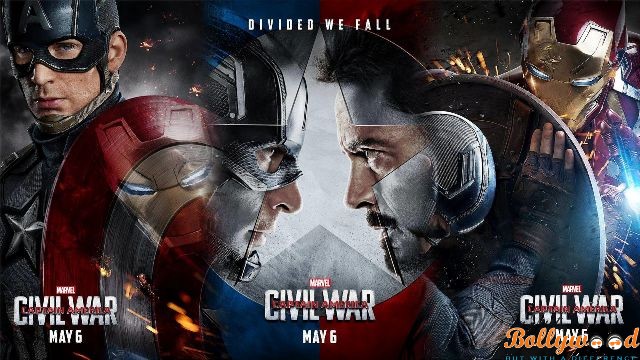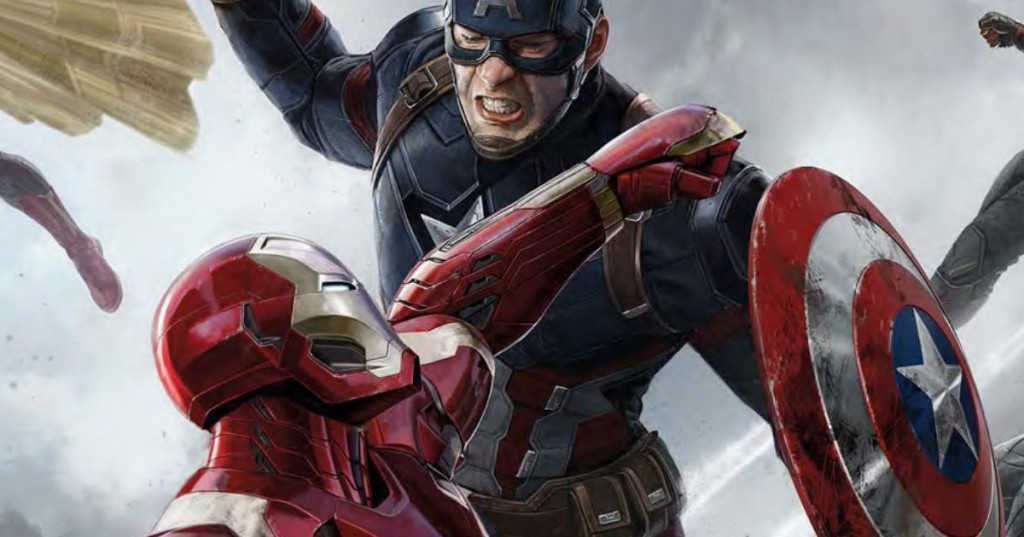In the Silver Age of comics, when Marvel became a serious competitor for DC, there was a distinct contrast in the storytelling styles of the two publishers, especially in the team titles (DC’s Justice League of America and Marvel’s Avengers, primarily). While DC spent most of its comic panels on plotting, Marvel’s approach was something more like: “Forget this silly script treatment–let’s have somebody fight!”
The “Marvel Misunderstanding” subplot became an inside joke with comic book readers–when there were no supervillains handy, excuses were dreamed up to have Marvel’s heroes duke it out with each other.
The difference between Marvel’s characters on the silver screen and in comic book pages is almost as drastic as the spy novels of Ian Fleming compared to the cinematic James Bond in the Roger Moore days. Still, we got a little “Marvel Misunderstanding” throwback in the first Avengers flick.
As the title of this movie (“Civil War”) suggests, most of the screen time is dedicated to fraternal conflict among Marvel’s big screen pantheon. But not due to a misunderstanding–because of a fundamental disagreement about “oversight.”
Collateral damage caused in the previous Marvel movies has caused various globalist interests to call for “hero control” (my term, thank-you).
Iron Man, at one point a free market capitalist hero, is now more of a corporatist bleeding heart who believes the answer is for the Avengers to be leashed by the United Nations. Now there is a brilliant quantum leap in logic: collateral damage caused by saving the planet from despotic monsters must be curbed by putting the good guys under the direct control of an organization with a horrific track record, run exclusively by unelected bureaucrats who don’t believe in representative government and are not accountable to any people anywhere in any way.
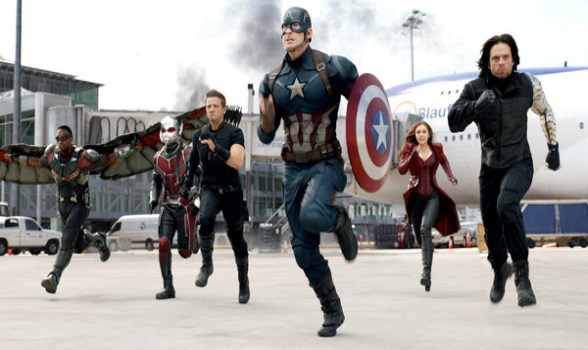
On the other side is Captain America. He doesn’t spell it out like I did, but amazingly, he senses the danger in such an arrangement, that would make the problem they’re trying to solve even worse (which is pretty much the de facto purpose of the United Nations).
Interesting analyses can be drawn from this scenario. It can be a metaphor for the whole “gun control” struggle or, more broadly, the march toward police statehood, and the belated reaction to it by Americans who prefer to be free men, partly represented in the Trumpening. Again, it’s amazing how accurately Tony Stark and Steve Rogers represent their respective sides, considering Hollywood’s blatant myopic axe-grinding in every other movie touching on the subject.
Marvel’s done a great job with characterization and humor in their movies, and that continues here, even though this might be their most somber one yet. Suddenly there is a whole subplot regarding Stark’s parents which affects his frame of mind in this movie. Robert Downey Jr. pulls it off with his usual panache.
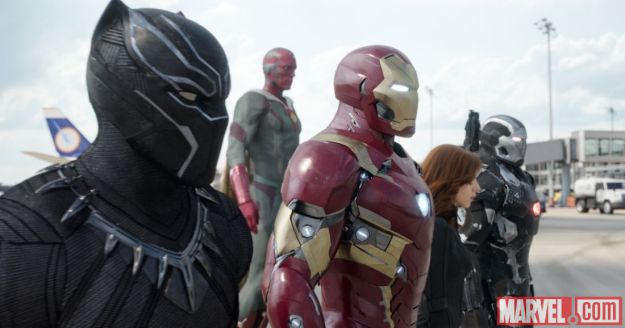
There’s a lot of character tweaking I found annoying, as a one-time comic afficionado. Of course, I quit reading comics as they became 100% SJW converged, so a lot has probably changed since then. Black Widow is about 20X more badass than in the comics I read, but she has been that way in all the movies, because vagina. It was cool to see Black Panther on the big screen, but he punches way above his weight here, too. But the most annoying is Spiderman.
Apparently the webslinger is getting yet another reboot. This time Peter Parker has a younger, attractive Aunt May, and is given his costume by Tony Stark who, somehow, has discovered his secret identity without ever having met him. Normally Spiderman would be the heavy hitter of all the heroes in this story (when the character was introduced by Stan Lee originally, only Thor, the Thing and the Hulk were stronger), but he is reduced mostly to comedy relief. The way he was brought in, and dismissed, makes him seem like just an afterthought in the script. Too bad, because the actor played him better than any other has, IMO.
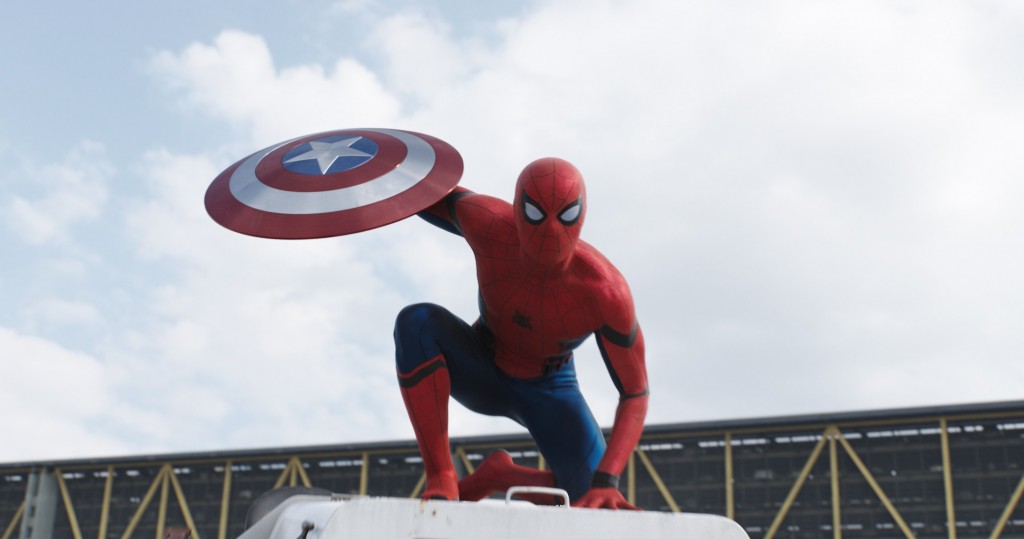
Physical prowess is treated inconsistently in every superhero adaptation for big and small screen. Of course part of this is necessary to conform to the feminist aspect of The Narrative. Much of it is no doubt contrived to make scenes more dramatic. Then there is the star clout of Downey Jr., who frankly got more attention in this film than the title character did. Spiderman and Captain America are not played by actors worshipped to the degree he is; therefore the characters must be depicted as inferior to his, one way or the other.
In any case, most moviegoers don’t know much about the source material anyway, so this should be a fun diversion for a couple hours.

